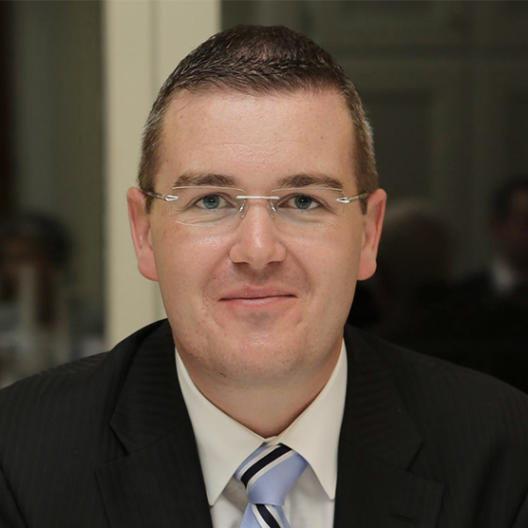“Scientists have an obligation to emulate the central tennant of Humboldt's philosophy”

Prof. Gilmour, what scientific topic are you working on right now?
My group are interested in molecular design to address challenges in catalysis and medicine. At present we are investing a lot of time in exploring carbohydrates for application in non-invasive molecular imaging. This is a fascinating class of biomolecules that control all aspects of cell behaviour, but accessing them in a well-defined way is extremely difficult.
What characterizes you personally as a scientist?
I have a natural sense of curiousity as, I think, most scientists do.
What is your great aim as a scientist?
The constant merging of research and education. I think scientists have an obligation to emulate the central tennant of Humboldt's philosophy (Allgemeinbildung). My main aim as a teacher and scientist is to ensure that all of my doctoral students leave with these ideas firmly instilled.
What’s your favourite “toy” for research – and what can it do?
I think all organic chemists would agree that nuclear magnetic resonance spectroscopy (NMR) is the best "toy"! This technique gives us crucial information on structure and chemical environment.
Can you remember your happiest moment as a scientist?
That's an easy one. I vividly remember being overcome by a mixture of happiness and relief on learning that my first independent paper had been accepted for publication. That was in 2009.
And what was your biggest frustration?
The constant erosion of freedom by research funding agencies, and the need to adjust proposals to fit concepts rather than simply tackling the problem of interest.
Which scientific phenomenon still regularly fascinates you today?
I had the honour of working next to Albert Eschenmoser, Emeritus Professor of organic chemistry at the ETH Zürich, who made seminal contributions to understanding the origin of life. This subject still fascinates me today and, although I am not working in this field, I follow the literature closely.
Which big scientific question would you like to have an answer to?
I find the chemistry of consciousness, and the obvious implications for human development, really fascinating. I look forward to the day when major breakthroughs are unveiled.
How much artistry, creativity and craftsmanship is there in your scientific work?
My students design and construct molecules with tailored properties for specific functions. This requires a huge amount of creativity to conceive a synthesis strategy from simple building blocks. Synthetic organic chemistry is an art in itself, requiring discipline, patience and a lot of determination to reach the final masterpiece!

